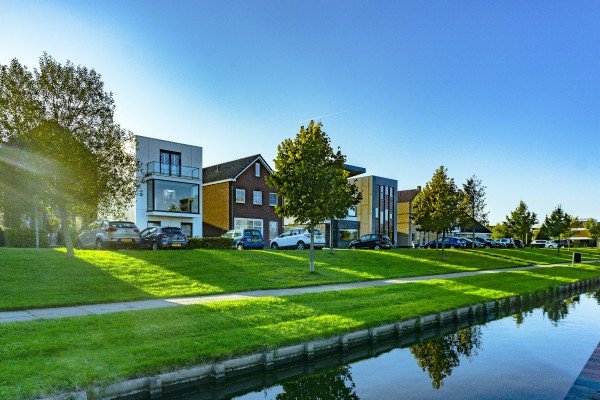News
Property Services News
The property construction sector in the United Kingdom has been going through a series of dynamic changes, driven by both economic factors and environmental considerations. The ongoing pandemic, Brexit, and the push towards sustainability have significantly influenced the construction industry, shaping its future trajectory.
Impact of the Pandemic on Construction
The COVID-19 pandemic has had a profound impact on the UK construction industry. Although the sector was initially brought to a halt due to lockdowns and social distancing measures, it has since shown resilience and adaptability. Construction projects have resumed with enhanced health and safety protocols, and there has been a noticeable shift towards remote project management and digital collaboration tools.
Brexit and Its Implications
Brexit has introduced both challenges and opportunities for the UK construction sector. On one hand, the industry has faced disruptions in the supply chain, labor shortages, and increased costs of materials. On the other hand, there has been a renewed focus on domestic manufacturing and sourcing of construction materials, which could bolster local businesses and reduce dependency on imports.
Sustainability and Green Building Practices
Sustainability has become a central theme in UK property construction. The government has set ambitious targets to achieve net-zero carbon emissions by 2050, prompting the construction industry to adopt green building practices. This includes the use of eco-friendly materials, energy-efficient designs, and renewable energy sources. There is also a growing emphasis on retrofitting existing buildings to enhance their energy performance and reduce their carbon footprint.
Major Projects and Developments
Several notable construction projects are currently underway across the UK, reflecting the sector's vibrancy and innovation. These projects span residential, commercial, and infrastructure developments, each contributing to the country's economic growth and urban transformation.

Residential Construction
The demand for housing remains high, driven by population growth and urbanization. Major residential projects, such as the regeneration of Battersea Power Station and the development of new neighborhoods in London and other cities, are addressing the housing shortage. These projects aim to provide affordable and sustainable living spaces, incorporating modern amenities and green spaces.

Commercial and Office Spaces
The commercial construction sector is witnessing a shift in demand patterns due to the rise of remote work and flexible working arrangements. Developers are focusing on creating versatile office spaces that can adapt to changing needs. The transformation of King's Cross in London into a mixed-use development with offices, retail, and leisure facilities is a prime example of this trend.
Infrastructure Projects
Infrastructure development continues to be a priority for the UK government, with significant investments in transportation and public utilities. Projects such as the High Speed 2 (HS2) rail network, the expansion of Heathrow Airport, and the Thames Tideway Tunnel are set to enhance connectivity, reduce congestion, and improve environmental sustainability.
Technological Advancements in Construction
The construction industry in the UK is embracing technological innovations to improve efficiency, reduce costs, and enhance project delivery. Key advancements include:
- Building Information Modelling (BIM) is revolutionizing the way construction projects are designed, planned, and executed. It enables better collaboration among stakeholders, reduces errors, and enhances project visualization.
- Modular and Prefabricated Construction: Prefabrication techniques are gaining traction, allowing for faster construction times and higher quality control. Modular construction is particularly suited for residential projects, reducing on-site disruption and waste.
- Drones and Robotics: Drones are being used for site surveys, inspections, and monitoring progress, while robotics are automating repetitive tasks, improving safety, and increasing productivity.
- 3D Printing: 3D printing technology is being explored for constructing building components and even entire structures, offering customization and reducing material wastage.
Challenges and Opportunities
While the UK property construction sector is poised for growth, it also faces several challenges that need to be addressed to sustain momentum.
Skills Shortage
One of the significant challenges is the shortage of skilled labor, exacerbated by Brexit and an aging workforce. The industry is investing in training programs and apprenticeships to attract and retain talent, as well as exploring automation to fill the gaps.
Regulatory Changes
The construction sector must navigate changing regulations, including those related to building safety, environmental standards, and planning permissions. Staying compliant while maintaining project timelines and budgets requires careful planning and adaptability.
Financing and Investment
Securing financing for large-scale construction projects can be challenging, especially in uncertain economic conditions. Public-private partnerships and innovative financing models are being explored to fund critical infrastructure and housing developments.
Future opportunities
The future of the UK property construction sector looks promising, with a focus on sustainability, innovation, and resilience. Collaboration among government, industry stakeholders, and communities will be key to overcoming challenges and seizing opportunities.
As the sector evolves, it will continue to play a crucial role in shaping the UK's urban landscape, providing high-quality living and working spaces, and driving economic growth. Embracing technological advancements and sustainable practices will ensure that the construction industry remains robust and future-ready.

